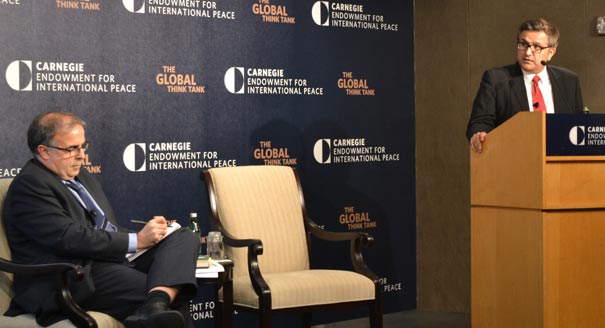Registration
You will receive an email confirming your registration.
There has only been one peaceful transfer of power in Pakistan since the country gained independence in 1947, and the military has either directly or indirectly ruled for over three decades. This firm grasp on the levers of power has cultivated a hostile relationship between the military and civilian governments, and severely hindered the development of democratic institutions in Pakistan.
Aqil Shah addressed the critical questions of how Pakistan’s military became so powerful and what its role could mean for the future of the nuclear-armed nation. Carnegie’s Frederic Grare moderated.
Aqil Shah
Aqil Shah is a lecturer in the Department of Politics at Princeton University and author of The Army and Democracy: Military Politics in Pakistan (Harvard University Press, 2014). His research focuses on democratization, civil-military relations, and regional security in South Asia, especially Pakistan. He holds a doctorate from Columbia University and was previously a postdoctoral scholar at the Society of Fellows at Harvard University.
Frederic Grare
Frederic Grare is senior associate and director of Carnegie’s South Asia Program. He works on India’s Look East policy, on Afghanistan and Pakistan’s regional policies, and on the tension between stability and democratization, including civil-military relations, in Pakistan.
